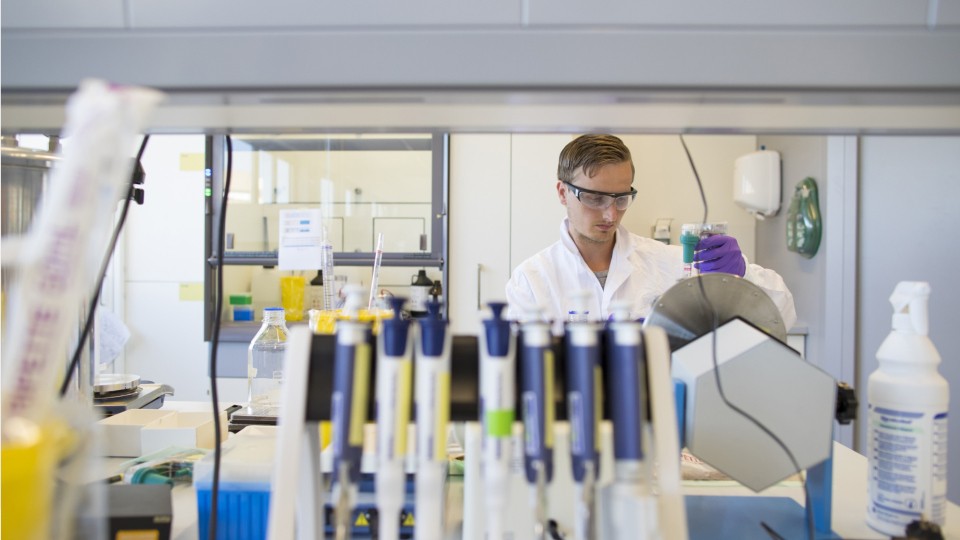Bioengineers & Biomedical Engineers
Biomedical Engineer, Biomedical Technician (Biomedical Tech), Process Engineer, Research Engineer
 Select a military branch to see samples.
Select a military branch to see samples.
Bioenvironmental Engineer; Bioenvironmental Engineer, Health Physics; Biomedical Equipment; Biomedical Equipment Apprentice; Biomedical Equipment Craftsman; Biomedical Equipment Helper; Biomedical Equipment Journeyman; Biomedical Equipment Manager; Biomedical Equipment Superintendent
Biochemistry; Health Services Systems Management
No similar titles were found.
Environmental Engineering Management Officer
Biochemist; Biomedical Equipment Technician
Bioenvironmental Engineer; Bioenvironmental Engineer, Health Physics
What they do:
Apply knowledge of engineering, biology, chemistry, computer science, and biomechanical principles to the design, development, and evaluation of biological, agricultural, and health systems and products, such as artificial organs, prostheses, instrumentation, medical information systems, and health management and care delivery systems.
On the job, you would:
- Evaluate the safety, efficiency, and effectiveness of biomedical equipment.
- Prepare technical reports, data summary documents, or research articles for scientific publication, regulatory submissions, or patent applications.
- Design or develop medical diagnostic or clinical instrumentation, equipment, or procedures, using the principles of engineering and biobehavioral sciences.
Knowledge
Engineering and Technology
- product and service development
- computers and electronics
Math and Science
- arithmetic, algebra, geometry, calculus, or statistics
- physics
Arts and Humanities
- English language
Health
- medicine and dentistry
Skills
Basic Skills
- listening to others, not interrupting, and asking good questions
- reading work related information
Problem Solving
- noticing a problem and figuring out the best way to solve it
People and Technology Systems
- thinking about the pros and cons of different options and picking the best one
- figuring out how a system should work and how changes in the future will affect it
Abilities
Verbal
- communicate by speaking
- communicate by writing
Ideas and Logic
- make general rules or come up with answers from lots of detailed information
- notice when problems happen
Math
- choose the right type of math to solve a problem
- add, subtract, multiply, or divide
Visual Understanding
- see hidden patterns
Personality
People interested in this work like activities that include ideas, thinking, and figuring things out.
They do well at jobs that need:
- Innovation
- Adaptability
- Achievement Orientation
- Intellectual Curiosity
- Cautiousness
- Integrity
Technology
You might use software like this on the job:
Analytical or scientific software
- SAS
- The MathWorks MATLAB
Enterprise application integration software
- Extensible markup language XML
- Microsoft Teams
Computer aided design CAD software
- Autodesk AutoCAD
- Dassault Systemes SolidWorks
Education
Education: (rated 4 of 5)
bachelor's degree or
master's degree
usually needed
master's degree
usually needed
Job Outlook
Bright
New job opportunities are very likely in the future.
Explore More
- Biochemists & Biophysicists
- Bioinformatics Scientists
- Molecular & Cellular Biologists
- Nanosystems Engineers
- Nanotechnology Engineering Technologists & Technicians
You might like a career in one of these industries:
See more details at O*NET OnLine about Bioengineers & Biomedical Engineers.






